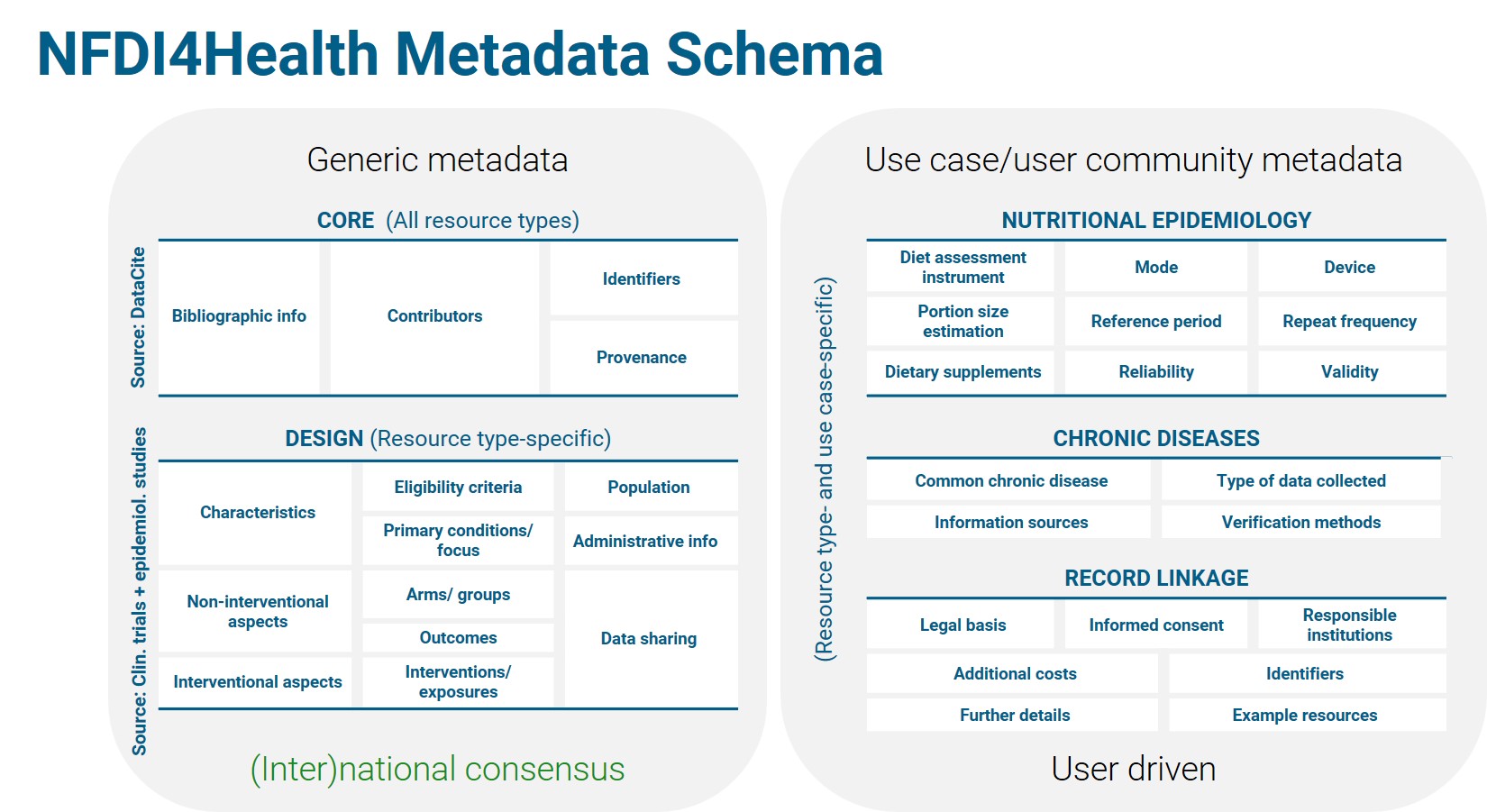Metadata schema
The NFDI4Health metadata schema is used for the structured collection and description of metadata in health research. It supports the findability, reuse and interoperability of research data and enables machine-readable and standardized publication in the Health Study Hub. Thanks to its modular design, the schema can be flexibly adapted to various requirements and application areas within health research, and is currently available on ART-DECOR and in FHIR format on Simplifier.

Purpose and Structure of the Metadata Schema
To make clinical, epidemiological, and public health research data FAIR (Findable, Accessible, Interoperable and Reusable), the NFDI4Health metadata schema enables the standardised publication of health resources’ metadata on the Health Study Hub. Though originally developed by the NFDI4Health Task Force COVID-19 and tailored to COVID-19 studies, the generic nature of the schema enables the registration of further types of resources such as registries, secondary data sources, and various study documents. The schema also extends to other health domains by adopting a modular structure, comprising core and domain-specific metadata items in generic and use-case-dedicated modules. Most items were primarily adapted from established standards and models, including DataCite, ClinicalTrials.gov, DRKS, Maelstrom, and MIABIS.
Module Structure and Key Content
The schema’s core module captures information commonly collected by any type of health resource, while further resource-type- and/or use-case-specific modules gather descriptions of resources of certain types or belonging to certain health domains. Bibliographic information, such as the resource’s title, description, and acronyms, is included in the core module, along with information about contributors and identifiers of relevant resources registered on the health study hub or elsewhere. Items to trigger other modules as well as provenance details about the publication of the resource are also included.
Extended Modules and Technical Implementation
For design and data access information, the schema provides a design module, comprising characteristics pertaining to certain resource types. For studies and substudies, the module distinguishes between interventional and non-interventional study designs and provides dedicated sections for aspects of each design type. The module also provides descriptive information about the study conditions and population, including recruitment area and sample size information. An administrative information section covers details about the ethics committee approval, status, and dates of the study, along with dedicated sections for eligibility criteria and outcome measures/time points. Information about data sharing is also included, triggering the record linkage module, when applicable. Due to multiple overlapping characteristics, most sections also apply to registries and secondary data sources.
The nutritional epidemiology module provides domain-specific information, mainly related to dietary assessment instruments applied in relevant studies. The chronic diseases module specifies whether prevalent or incident disease data were collected and indicates the sources from which the data were generated. The third dedicated module provides legal, consent, and budget information required for enabling record linkage. Modules providing clinical trials and imaging/radiomics metadata are yet to be implemented. All modules incorporate mandatory, conditional, and optional items.
Availability
The schema is currently available machine-readable in ART-DECOR and mapped to HL7's FHIR. Accordingly, FHIR profiles have been created and published on Simplifier. To facilitate sharing metadata by data holding organisations, the schema is also being implemented by Local Data Hubs at several NFDI4Health partner locations.

 English
English  Deutsch
Deutsch 